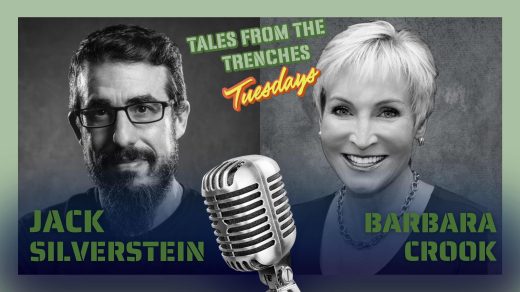
June 2, 2023
There is a lot of talk about Donor Advised Funds (DAFs) lately. Many large foundations (and even some smaller ones too) have enjoyed having Donor Designated Funds (DDFs) for quite some time. I read with keen interest a recent report by the Canadian Association of Gift Planners (CAGP) titled “Influence, Affluence and Opportunity: Donor-advised Funds in Canada”. But many donors are questioning what the difference is between DDFs and DAFs and what is right for them.
One of the first things to address is the fact that people use the terms DAFs and DDFs interchangeably. They would be wrong. In both cases, the donor identifies the causes to be supported at the establishment of the fund. But with a DDF, it’s more of a “set it and forget it” mentality.
Some Definitions
Donor Designated Funds (DDFs)
A fund where the donor has “chosen” a specific charity or group of charities to receive distributions. By starting a DDF, the donor chooses one or more charitable organizations and the charity will grant to them automatically every year. Some charities have a minimum opening balance to start a DDF.
Donor Advised Funds (DAFs)
A fund where the donor can make recommendations for distribution on a regular pre-determined basis. DAFs also have a minimum balance, usually higher than that of a DDF. DAFs offer donors the same advantages as having a Private Foundation without all the administrative hassle. Many donors use a DAF as an incubator before deciding to start their own foundation. I wrote about setting up your own endowment here.
Why Use Them?
It used to be that DAFs were unregulated and provided an opportunity for people to use them merely for tax avoidance purposes. I would contend that tax avoidance is not the prime motivator for anybody to donate. Currently, there is no disbursement quota imposed through the Income Tax Act for DAFs. However, some individual DAF foundations impose internal guidance on annual distributions. The lack of disbursement quota issue is a huge advantage of the DAF over the regular DDF (from the charity’s perspective).
Are banks/trust companies philanthropic?
Most major financial institutions and insurance companies have been staunch supporters of DAFs that they manage. Think about this situation:
Mrs. Jones loves her pet chihuahua. She believes that the local Humane Society would be a great place to ensure that chihuahuas are well taken care of and wants to set up a fund whereby the net income derived would support dogs. Her fervent hope is that there would be a $5,000 annual distribution made so the local Humane Society could continue its good work with dogs. She would need approximately $150,000 worth of capital to make this a reality. She has a great stock portfolio, thanks to her keen financial advisor and wants to withdraw $150,000 of capital and give it to the local Humane Society to manage in its endowment funds to accomplish her dream.
It is not in the financial advisor’s best interest to transfer $150,000 of Mrs. Jones’ investments away from “assets under management” to the Humane Society’s investments. “Assets under management” is the measure of compensation for financial advisors. It is much more favorable for the financial advisor to set up a DAF at their own financial institution for Mrs. Jones that will have the same net effect — approximately $5,000 going to the local Humane Society annually.
Some of the largest DAFs in North America belong to Fidelity Trust. I do not believe that anybody thinks of Fidelity Trust as particularly philanthropic. It is the equivalent of saying that VISA is the largest donor for online transactions.
Conclusion
Whether it is a DDF or a DAF, donor input as far as the direction of the gift is becoming more and more important. Today’s donors have less trust that the charities will apply the gifts in how the donor intends. That is a whole separate discussion for a different post. DAFs and DDFs are here to stay and it is in a charity’s best interest to fully embrace and understand these gift giving vehicles.
Until next week.
L’chaim,
jack




